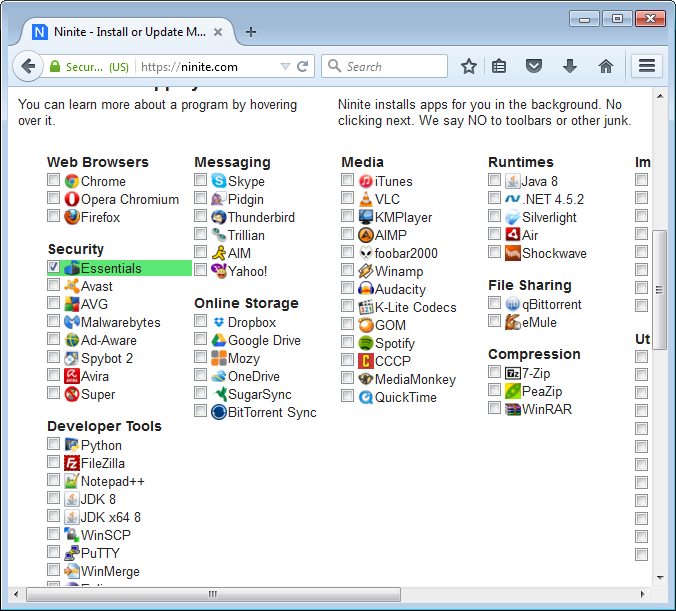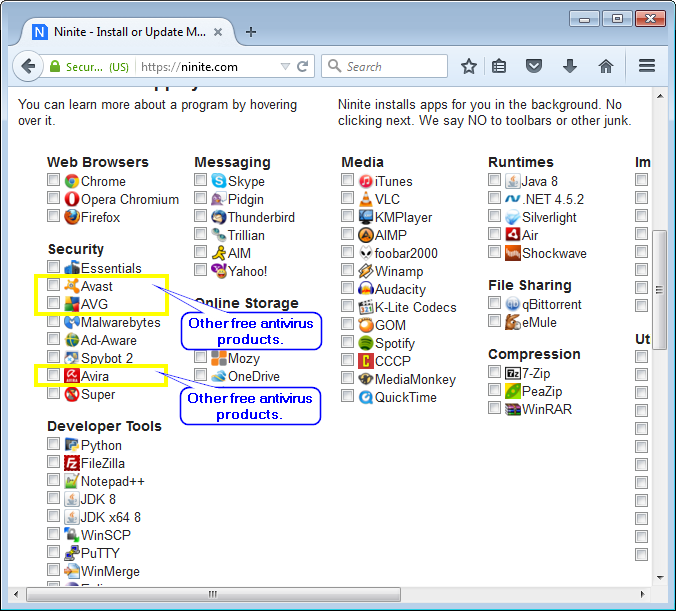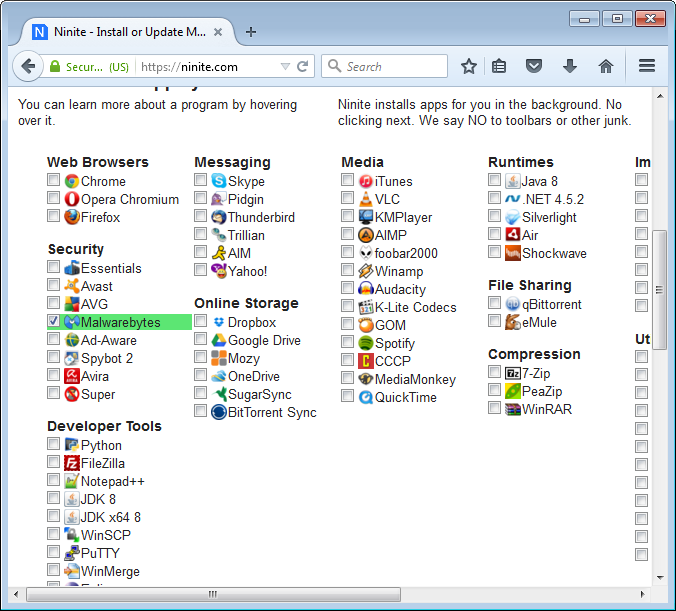Keep your antivirus up to date¶
Antiviruses can help stop some virus and malware infections from getting on your computer, but they do not catch everything. Practicing some of the techniques listed above can help prevent malicious software from being downloaded to your computer in the first place. In this sense, antiviruses are a last defense.
There are lots of antivirus products on the market. Some of them are free for home users, and others cost money. They do vary in quality. If you are looking to purchase an antivirus product, then you might want to talk with the volunteers at Computer Recycling to get some recommendations.
If you are looking for a free antivirus, Microsoft Security Essentials is a reasonable choice. It is available from Ninite, is legal for home users to use, offers okay protection from viruses, and does not nag you to upgrade to a paid product:

There are several other antiviruses available from Ninite: Avira, AVG, and Avast. (And others?) Many of these products require registration to work, and they will nag you to purchase their paid offerings, but they might be sensible choices as well:

You might also choose to pay for an antivirus product, or you may receive one in some other way (for example, you may pay for one via your Internet Service Provider).
In general you only want to run one antivirus product at a time, because two different antivirus products can fight with each other, making your computer very slow. Having said that, there are some antimalware tools that can be used to scan your computer manually. One product we like is called MalwareBytes Antimalware:

MalwareBytes does not include a realtime scanner, so it must be run manually. This product can be good to run on a semi-regular basis (say once a month) or if you suspect you may have been infected with something.